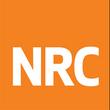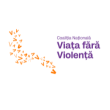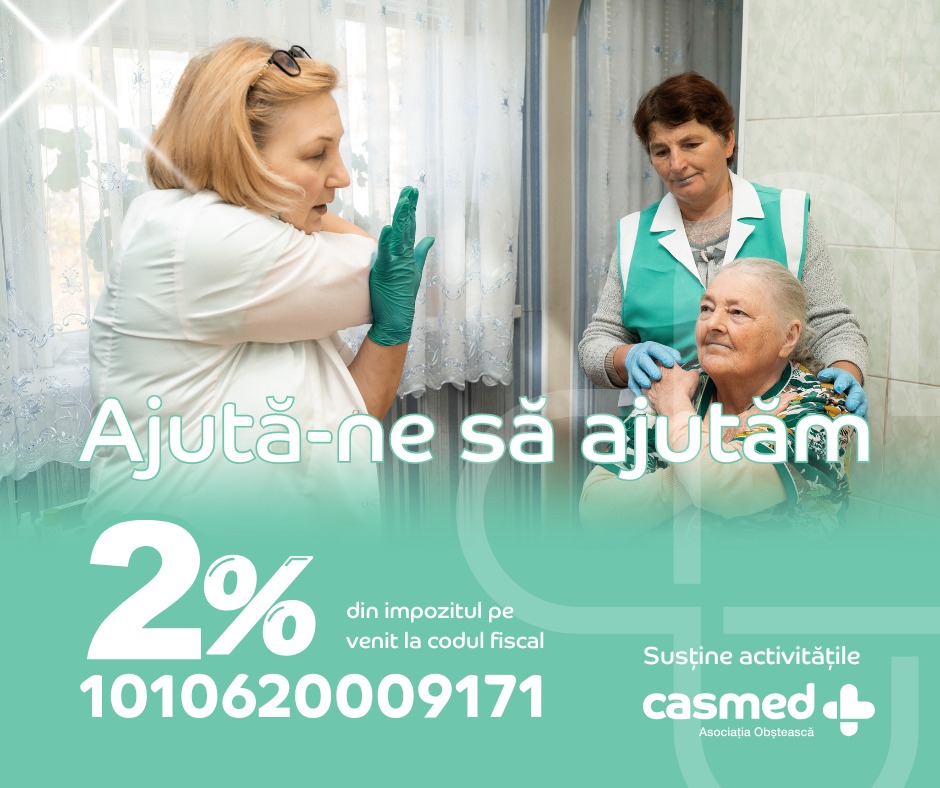Achiziții de bunuri și contractări de servicii
- Detalii
- Categorie: Achiziție bunuri, Contractare Servicii
People in Need in Moldova is searching for a consultant to conduct a needs assessment research study on Migration and Migrants in Moldova
Informațiile prezentate în articolul de mai jos pot să nu mai fie actuale sau să nu mai reflecte activitățile și programele curente. Anunțul este păstrat în arhivă pentru a asigura transparența și accesul public la informațiile despre inițiativele și proiectele implementate anterior.
CONSULTANCY ON CONDUCTING NEEDS ASSESSMENT IN THE FIELD OF MIGRATION IN MOLDOVA
People in Need in Moldova is searching for a consultant to conduct a needs assessment research study on Migration and Migrants in Moldova to support the PIN initiative titled 'Cities and Regions for All.'
All detailed information on the background and context of the initiative, scope and research questions, expected deliverables, timeframe, and criteria for offers’ evaluation can be found below. The deadline for submission of technical and financial offers is May 13, 2024 (end of the day), with the expectation of providing the final deliverable, the needs assessment report, by May 31, 2024.
Basic information about PIN
People in Need is a Czech non-governmental, non-profit organization active all over the world. People in Need has been helping in crisis-affected areas and promoting respect for human rights since 1992, and active in Moldova since 2003. PIN was also among the first organizations that provided emergency support after the full-scale invasion of Russia over Ukraine in February 2022.
Throughout the 30 years of its existence, People in Need has become one of the biggest non-profit organizations in Central Europe. In addition to humanitarian aid and human rights, it now also targets education and helps people living in social exclusion.
1. Background and Context
The People in Need (PIN) initiative titled “Cities and Regions for All” aims to support EU’s migration priorities with partner countries, specifically tailored to the context of Moldova.
Moldova has been proactive in implementing a Temporary Protection scheme for Ukrainian refugees, showcasing its commitment to EU migration priorities and adaptability in humanitarian situations. Moldova has adopted comprehensive programme on management of migration flows, asylum and integration of foreigners 2022-2025 in line with the Global Compact for Safe, Orderly, and Regular Migration and the Global Compact on Refugees, demonstrating its dedication to international standards in migration management. Furthermore, Moldova's strategic integration of migration policies with its broader national strategies, such as the National Climate Change Adaptation Program until 2030 and the Moldova 2030 National Strategy[1]. In addition, the Government of Moldova approved the “National program to stimulate returns and facilitate the (re)integration of citizens of the Republic of Moldova involved in the migration process for the years 2023-2027”. This program reflects a nuanced understanding of the challenges faced by returnees and the potential benefits of leveraging diaspora expertise for national development. Moldova’s alignment with the EU’s New Pact on Migration and Asylum through these policies and strategies underscores its commitment to humane and effective migration management, focusing on legal pathways and migrants’ right.
However, despite these efforts, there are still gaps in policy implementation. The alignment between Moldova’s migration objectives and those of the EU is crucial for enhancing the impact of proposed interventions under this project, aiming to better coordinate Moldova’s migration policies with those of the EU.
The upcoming national social protection program and other reforms raise doubts about overlooking refugees' and migrants' needs. The Reform of Social Assistance System (RESTART) in Moldova faces obstacles, closing 32 Social Assistance Departments and replacing them with 10 Territorial Agencies (ATAS). This reform risks service shutdowns and confusion among vulnerable groups. The document briefly mentions refugees but omits migrants, indicating a need for more inclusive policy planning. Despite focusing on digitalization and capacity building, it overlooks direct migrant inclusion. Education reform and EU accession reforms face uncertainty and limited dialogue with civil society. Refugees in Moldova struggle with insufficient state financial aid, with 30-60% unable to meet basic needs. Vulnerable groups, including the elderly and disabled, face significant hardships. Educational reforms see declining exam pass rates and low proficiency, especially among rural and Roma children. Local authorities lack sufficient data to make informed decisions on social services. Enhancing legal frameworks and capacity-building is crucial, along with local-level interventions for effective migration management and community integration. Inefficiencies in social care services pose sustainability threats, emphasizing the need for aligned interventions to foster a more effective migration management system in Moldova.
2. Research Questions
The needs assessment research should answer the following questions (*When the term 'migrant' is mentioned below, it encompasses all types of migrants, including refugees. However, it also places sufficient focus and attention on other types of migrants in Moldova. This is because, unlike refugees, there is already a considerable amount of studies and materials available on refugees in Moldova):
THE SOCIAL SERVICES
- To what extent ongoing and upcoming national social protection programs and reforms in Moldova consider needs of different type of migrants? To what extent those needs are mapped by different level authorities and what is the overall understanding of those needs among them? How state and municipality capacities could be supported in this regard?
- What are the challenges and obstacles faced during implementation of Reform of Social Assistance System (RESTART), when it comes to addressing the needs of refugees and migrants in Moldova, including their access to social services? What gaps and risks are associated with the transition from 32 Social Assistance Departments to 10 Social Assistance Territorial Agencies (ATAS)? How those challenges could be mitigated and gaps and needs addressed, and what type of support, including capacity building, both central and local authorities need?
- What are the implications of omitting migrants from the scope of the RESTART reform document, and how can policy planning be made more inclusive for migrants in Moldova?
- What are the challenges faced by local and regional authorities in Moldova in collecting differentiated data on the needs of refugees and migrants to inform decision-making processes regarding access to social services? What are the state and municipality capacity building needs in this regard?
EDUCATION
- What are the primary barriers and challenges faced by migrant and refugee children in accessing formal education in Moldova, and how do these barriers vary across different regions and communities? How central and local authorities address them, and what support might be required?
- How do ongoing educational reforms and potential closures of rural schools in Moldova impact the access to education for refugee and migrant children, particularly those from rural, Roma and other minority communities?
- What are the support mechanisms and interventions currently in place to address the educational needs of migrant and refugee children in Moldova, and how effective are these interventions in promoting their academic success and social integration? To what extent policies related to school enrolment, curriculum adaptation, and teacher training for migrant and refugee students in Moldova effective, and how those could be additionally supported?
- What are the opportunities for non-formal and informal education initiatives to supplement formal schooling for migrant and refugee children in Moldova, and how do these initiatives contribute to their overall educational development and social integration?
- How can partnerships between governmental agencies, non-governmental organizations, and community-based grassroot organizations be strengthened to enhance educational opportunities and support services for migrant and refugee children in Moldova, particularly in underserved and marginalized communities?
LIVELIHOODS
- What are the livelihood strategies employed by refugees and migrants in Moldova to cope with economic challenges and social exclusion, and how do these strategies vary across different demographic groups and regions?
- What are the livelihood challenges faced by refugees and migrants in Moldova, particularly regarding employment opportunities, income generation, and access to sustainable livelihood resources, and what interventions can be implemented to mitigate these challenges? What central and local authorities do in this regard and how they could be supported?
- How do perceptions of social inclusion and integration among refugees and migrants in Moldova influence their ability to access livelihood opportunities and participate in economic activities? How do structural barriers, such as language proficiency requirements and discrimination in the labour market, affect the livelihood prospects of refugees and migrants in Moldova?
- What are the gender-specific challenges faced by refugee and migrant women in accessing livelihood opportunities and economic empowerment initiatives in Moldova?
- What are the potential policy interventions and support mechanisms that can enhance the livelihoods and economic integration of refugees and migrants in Moldova, considering the existing socio-economic context and institutional frameworks?
CROSS-CUTTING TOPICS
Capacity building needs:
The primary aim of the research is to identify capacity building needs of both state and municipality actors, thus the capacity building topic should be specifically mainstreaming through all three sectors: social services, education and livelihoods, to respond to the following research question:
- What are the identified capacity building needs, including policy-level requirements, and the extent of civil society and migrant involvement, in the context of social services, education and livelihoods, when it comes to state and municipality actors?
Information dissemination:
As the primary focus of the intervention is information dissemination, thus this topic should be specifically mainstreaming through all three sectors: social services, education and livelihoods, to respond to the following research question:
- What strategies do authorities (state and municipalities) employ to communicate with migrants, and how do they assess and address gaps in awareness raising, information provision, and communication with their clients (people they serve)? What could be improved in this regard and what capacities of state and municipalities should be strengthen and how?
3. Stakeholder, Documentation and Methods Selection
Stakeholders and representatives of relevant departments from the following institutions (suggested, as research could go beyond):
- Ministry of Labour and Social Protection
- Ministry of Education and Research
- Ministry of Internal Affairs with its Inspectorate General for Migration
- Municipality of Chisinau
- Municipality of Balti
- Municipality of Comrat
- Congress of Local Authorities from Moldova (CALM)
- Municipality of Iași (Romania)
- Municipality of Botoşani (Romania)
- Municipality of Sector 3 in București (Romania)
- Social Assistance Territorial Agencies (ATAS in Romanian language+)
- Local NGOs/CSOs engaged in the field of migration (e.g. Law Centre of Advocates – CDA; The Charity Centre for Refugees – CCR; The Alliance of Active NGOs in the field of Child and Family Social Protection – APSCF, etc.)
- UN agencies (e.g. UN, IOM, UNDP, UNHCR, UNICEF, ILO, UN Women, etc.) and other international organizations (e.g. ICMPD Moldova – International Centre for Migration Policy Development, World Bank in Moldova) active in the field of migration
- INGOs active in the field of migration (e.g. European Association of Service providers for Persons with Disabilities, HIAS Moldova, ISSA Moldova, Project HOPE Moldova, etc.)
- Representatives of civil society active in the field of migration
- Experts and academics active in the field of migration
- Final beneficiaries (the representatives of refugees and migrants)
Documentation (suggested, as research should go beyond):
- EU's New Pact on Migration and Asylum (*The alignment between Moldova's migration objectives and those of the EU is crucial for enhancing the impact of proposed interventions under this project, aiming to better coordinate Moldova’s migration policies with those of the EU);
- Moldova has adopted “Programme on management of migration flows, asylum and integration of foreigners 2022-2025” in line with the “Global Compact for Safe, Orderly, and Regular Migration and the Global Compact on Refugees”;
- Aspects of migration and migration policies reflected by government of Moldova in National Climate Change Adaptation Program until 2030 and the Moldova 2030 National Strategy[2];
- Moldova’s “National program to stimulate returns and facilitate the (re)integration of citizens of the Republic of Moldova involved in the migration process for the years 2023-2027”;
- Bridging the Gap: Migration Policies and People’s Policy Perspectives in Balti and Cahul (Republic of Moldova)[3]. (2023). IOM
Methods (suggested):
The final design of the needs assessment research process, including a detailed description of its methodology and the methods to be applied, will be presented by the consultant in the Inception Report, along with drafts of the data collection instruments.
Data collection methods should incorporate desk reviews, interviews, and focus group discussions (e.g., with refugees and migrants; or alternative methods) involving relevant project stakeholders (refer to the suggested list of stakeholders above). While some contacts are available through PIN, others may need to be obtained directly by the consultant, potentially using a snowball approach. In-depth interviews could be supplemented by a survey questionnaire conducted among organizations active within the INGO Forum in Moldova.
Interviews are primarily to be conducted in person in Chisinau and remotely for stakeholders located outside of Moldova. The consultant may also be required to conduct interviews in person in Balti, Comrat, and nearby locations (up to 5 working days).
For most interviews, particularly those with representatives of states, municipalities, and international organizations, PIN program team members may be present, and some interviews will be directly arranged by PIN.
4. Deliverables and timeline
Deliverables & deadlines:
- Data Collection, analysis and report drafting between May 15-23, 2024
- Draft of the needs assessment report by May 24, 2024
- Review and report finalization by May 31, 2024
5. Budget
The consultant should provide the budget offer with cost details, including all taxes; costs of field work, up to 5 days in Balti, Comrat and nearby locations should be included in the offer.
6. Criteria
The Researcher / Reserach Team must fulfil the following criteria, and the contract will be awarded to the consultant or company whose offer is evaluated and deemed the most advantageous according to the following criteria (Weight of Technical Criteria: 70%, that is 70 points and Weight of Financial Criteria: 30%, that is 30 points).
Criteria, scores & maximum points to be obtained:
Obligatory (the consultant need to comply with this criterion in order to proceed with assessment of all other criteria; the consultants that do not comply will not be considered):
Prior experience of working in the Republic of Moldova is a must (mandatory to comply)
Technical assessment (in total 70 points)
- Proven and strong track record of conducting project researches, needs assessment studies and/or different types of evaluation studies. (20 points)
- Track record of experience in the field of migration, e.g. migration policies and legislation; migration in Moldova from the perspective of different scientific fields, that is: sociology (social dynamics and integration), economy (impact on the economy, labour market), education (challenges and opportunities, school integration, language aspect), demography (impact of migration on population, causes and consequences of demographic changes), or geography (migration patterns, spatial distribution). (15 points)
- Prior experience of working with international organizations, especially INGOs; prior experience of working with People in Need would be an advantage. (20 points)
- Excellent knowledge of English and Romanian is required; A good command of Russian is a distinct advantage. (15 points)
Financial assessment (in total 30 points)
The evaluation of the financial offers submitted will be based on the following formula:
S = Fmin / F * 30
S – score received in the financial evaluation;
Fmin – the lowest financial offer of all the qualified bids submitted in the technical evaluation round;
F – financial offer considered.
7. Selection process
The selection process will proceed as follows:
- Applicants are requested to submit a financial and technical offer in a form of Inception Report, including methodology with all data collection instruments to be sent at the latest by deadline of May 13, 2024 at tender.moldova@peopleinneed.net in CC: rafal.chibowski@peopleinneed.net and luciana.bollati@peopleinneed.net; Subject: “PIN – Needs Assessment on Migration and Migrants in Moldova - Cities and Regions for All”
- Suggested structure of the Inception Report; the Inception Report should follow the below-mentioned minimum requirements structure, while describing the proposed methodology:
I. Introduction
- Background and Context (sketched)
- Purpose and Scope of the needs assessment
II. Methodology
- Research Questions and Detailing of the Research Questions
- Indicators
- Methods of Data Collection, Data Sources and Analysis
- Sampling Approach
- Management of the needs assessment
- Limitations to the needs assessment
III. Desk Review Preliminary Findings
IV. Workplan (Action Plan/phases of the needs assessment, the timing, key deliverables and milestones)
V. Logistics and Support Required
Annexes:
- Annex 1 – Needs Assessment Matrix/Analytical Framework
- Annex 2 – Data collection instruments
- Annex 3 – List of Reviewed Documents
- Technical (Inception Report, including methodology) and financial offer which will be assessed by an Evaluation Committee against the criteria listed in the section 6. PIN reserves the right to enter into a negotiation with the candidates on the financial offer proposed by them, before finalising the selection process. The technical offer will be weighted with 70%; the financial offer will be weighted with 30%. Incomplete applications will not be considered.
The selection process will be finalised after the agreement with the Evaluation Committee on the financial offer has been found.
[1] https://publications.iom.int/books/migration-governance-indicators-second-profile-2021-republic-moldova(IOM, 2021)
[2] https://publications.iom.int/books/migration-governance-indicators-second-profile-2021-republic-moldova(IOM, 2021)
[3] https://publications.iom.int/books/bridging-gap-migration-policies-and-peoples-policy-perspectives-balti-and-cahul-executive-summary













